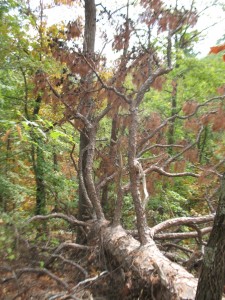I get this question occasionally from my students, and the answer is, of course, that it depends on how you define the word “sound”. Jim Baggott, on the Oxford University Press blog, goes into more detail about the roots of this philosophical conundrum, and makes the parallel to quantum physics.

Physics and philosophy are a dangerous pairing, particularly since if you know enough about one to speak intelligently about it, your probably way out of your depth in talking about the other. Just because you’re an expert in one field does not mean you’re going to be an expert in another. This is especially true of physics and philosophy, which approach the world from such different perspectives and use such different languages: to a physicist, “sound” refers to the vibrations in the air, while a philosopher might argue that “sound” only exists in our minds.
Philosophers have long argued that sound, colour, taste, smell and touch are all secondary qualities which exist only in our minds. We have no basis for our common-sense assumption that these secondary qualities reflect or represent reality as it really is. So, if we interpret the word ‘sound’ to mean a human experience rather than a physical phenomenon, then when there is nobody around there is a sense in which the falling tree makes no sound at all.
— Jim Baggott: Quantum Theory: If a tree falls in forest…